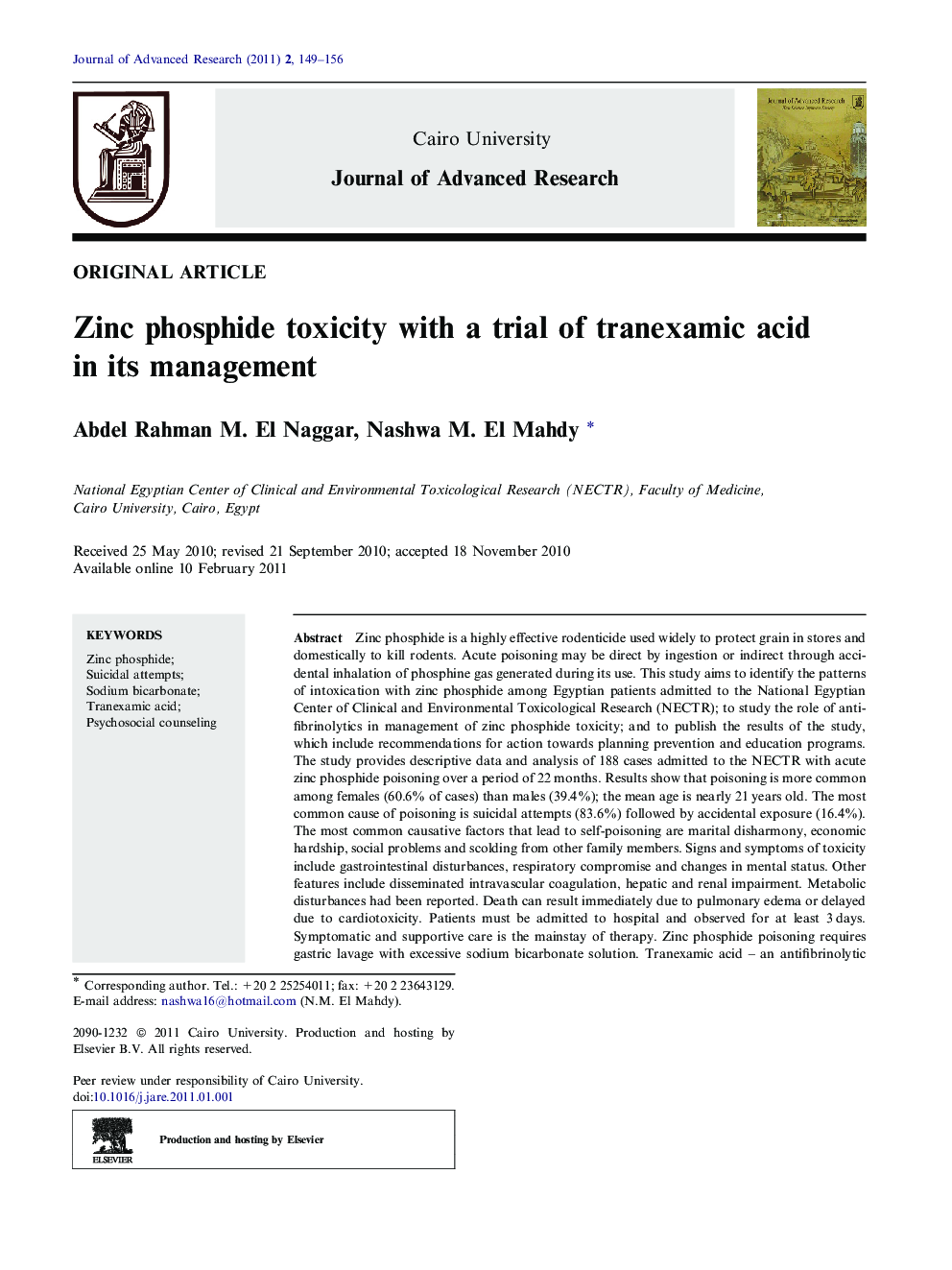| کد مقاله | کد نشریه | سال انتشار | مقاله انگلیسی | نسخه تمام متن |
|---|---|---|---|---|
| 826455 | 907928 | 2011 | 8 صفحه PDF | دانلود رایگان |

Zinc phosphide is a highly effective rodenticide used widely to protect grain in stores and domestically to kill rodents. Acute poisoning may be direct by ingestion or indirect through accidental inhalation of phosphine gas generated during its use. This study aims to identify the patterns of intoxication with zinc phosphide among Egyptian patients admitted to the National Egyptian Center of Clinical and Environmental Toxicological Research (NECTR); to study the role of antifibrinolytics in management of zinc phosphide toxicity; and to publish the results of the study, which include recommendations for action towards planning prevention and education programs. The study provides descriptive data and analysis of 188 cases admitted to the NECTR with acute zinc phosphide poisoning over a period of 22 months. Results show that poisoning is more common among females (60.6% of cases) than males (39.4%); the mean age is nearly 21 years old. The most common cause of poisoning is suicidal attempts (83.6%) followed by accidental exposure (16.4%). The most common causative factors that lead to self-poisoning are marital disharmony, economic hardship, social problems and scolding from other family members. Signs and symptoms of toxicity include gastrointestinal disturbances, respiratory compromise and changes in mental status. Other features include disseminated intravascular coagulation, hepatic and renal impairment. Metabolic disturbances had been reported. Death can result immediately due to pulmonary edema or delayed due to cardiotoxicity. Patients must be admitted to hospital and observed for at least 3 days. Symptomatic and supportive care is the mainstay of therapy. Zinc phosphide poisoning requires gastric lavage with excessive sodium bicarbonate solution. Tranexamic acid – an antifibrinolytic agent – was found to be of help in some cases. Psychosocial counseling in cases of intentional poisoning is an important aspect of overall management of the problem.
Journal: Journal of Advanced Research - Volume 2, Issue 2, April 2011, Pages 149–156